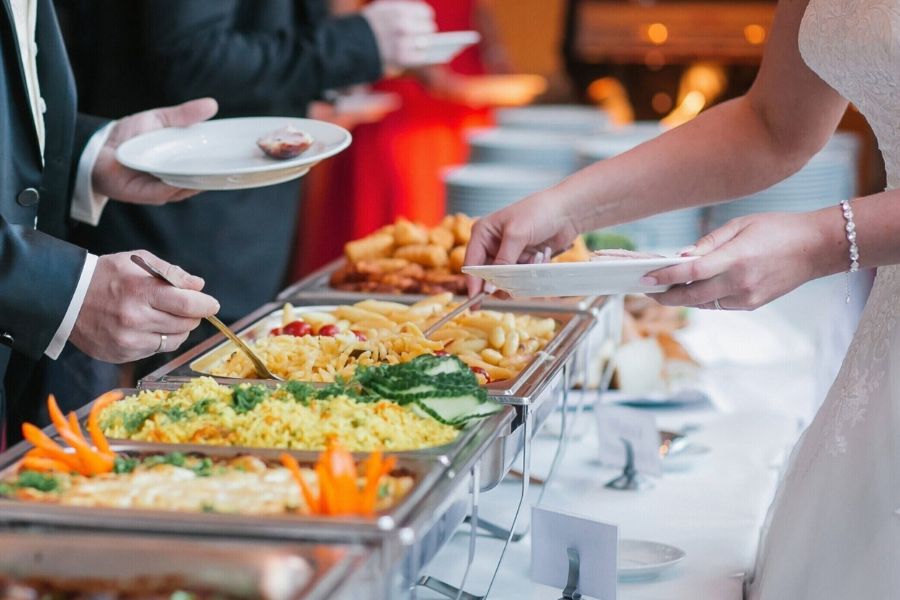Introduction:
For restaurants, cafes, catering companies, and food service outlets, buying used or reconditioned catering equipment can be a cost-effective solution. However, to guarantee you get quality equipment that satisfies your business needs while keeping within your budget, the process requires careful thought and extensive research. We offer thorough advice in this article to enable you to decide wisely about purchasing used catering equipment.
Top Tips for Purchasing Used Catering Equipment
Understand Your Needs
Clearly state your particular needs before starting your hunt for used catering equipment. List the products you must have to run your catering company. Give basic tools, including ovens, refrigerators, fryers, mixers, and serving utensils, a top priority. Consider the size of your kitchen or workstation, food production volume, and cuisine or service type you offer. This clarity will help you avoid buying pointless or unsuited objects.
For instance, if your catering company specialises in baking, it is more important to invest in a trustworthy used commercial oven and mixers than in an industrial fryer. Making your purchases fit your basic needs guarantees that your investment directly supports your operations.
Set a Realistic Budget
Although used equipment is usually less expensive than brand-new products, without a clear budget, you can quickly accumulate expenses. Stick to your financial plan and find out how much you are ready to pay for every piece of equipment. Additionally, it is wise to set aside extra money for unanticipated equipment repairs or upgrades following purchase.
Remember that the least expensive choice is not usually the best one. Analysing the condition, lifetime, and possible maintenance expenses of the equipment helps one to balance cost with quality. Purchasing something overly cheap could result in more long-term costs and frequent repairs.
Research Reliable Sellers
Buying used catering equipment requires a reliable seller. Among the several paths to investigate are specialised equipment dealers, internet markets, auctions, and local restaurant closings. Every choice offers advantages and drawbacks:
- Specialised Dealers: Before re-selling used equipment, these vendors often check and fix it. Although costs could be a little more, you will be at peace about quality.
- Online Marketplaces: Websites like eBay, Facebook Marketplace, or Craigslist can present excellent discounts, but they also demand careful review of vendors and products.
- Auctions: Restaurants who go out of business sometimes auction their equipment. Although these events might not have warranties or guarantees, they can provide premium tools at great savings.
Research the seller’s reputation using references, reviews, or testimonials before deciding on any buy-through. A trustworthy seller will honestly respond to your enquiries and offer a thorough background on the history of the equipment.
Inspect the Equipment Thoroughly
Examining used catering equipment closely is one of the most important stages in buying it. See the equipment personally, if at all possible, to evaluate its condition. Search for evidence of rust, wear and tear, or damage, possibly compromising functionality. Important areas of focus are:
- Electrical Components: Look for wear or fraying in switches, plugs, and wires.
- Mechanical Parts: Make sure moving components—like conveyor belts or mixer gears—run as they should.
- Cleanliness: Equipment should be free of too much grease, grime, or corrosion. Bad maintenance could point to more serious problems.
- Operational Test: Turn on the equipment’s power to guarantee it runs as it should if the seller allows it to.
If personal inspection of the equipment proves impossible, ask the seller for thorough pictures or videos. Sometimes, paying a professional technician to evaluate the equipment will help you avoid expensive mistakes.
Check for Warranty or Guarantee
While used equipment usually comes without a warranty, some vendors or dealers could provide few guarantees or service plans. In the event of unplanned breakdowns or failures, these can be quite helpful. Enquire of the seller about any maintenance or warranty records. Make sure the manufacturer provides second-hand equipment and extended warranty choices.
Prioritise Stainless Steel Equipment
Give stainless steel items top importance when purchasing used catering equipment. Food service operations would find stainless steel perfect since it is robust, rust and corrosion-resistant, and easy to clean. Though the equipment is worn, stainless steel components can usually be restored with some polishing and cleaning. Other materials, such as plastic or aluminium, could break down faster with time.
Consider Energy Efficiency
Over time, energy-efficient appliances can save you rather large utility bill savings. Search for appliances with Energy Star ratings or comparable certifications that show reduced energy use. An energy-efficient model may be a good investment even if its initial cost is more since, over time, the savings on gas and electricity bills will offset this.
Ask also whether the machinery has been changed or upgraded to increase its energy economy. If you decide to purchase older models, be ready for perhaps more running costs since they might lack modern energy-saving technologies.
Factor in Delivery and Installation Costs
When buying big catering equipment, give delivery and installation some thought. While some vendors charge extra, others might include delivery as part of the agreement. Ask about these expenses up front, too.
Professional installation may also be necessary for heavy or complicated equipment to guarantee it is set up securely and conforms with local health and safety laws. Budgeting for these extra costs will help to avoid unwelcome shocks.
Conclusion:
One great approach to cutting expenses without compromising functionality is buying used catering equipment. Understanding your needs, carefully reviewing the equipment, and dealing with trustworthy vendors will help you make wise choices that will help your catering company down the road. Remember that finding quality used equipment at the best price depends mostly on thorough planning and research; thus, keep these ideas in mind while shopping.
Also, read: How to Properly Clean Your Soft Serve Machine? 5 Easy Steps








Leave a Reply